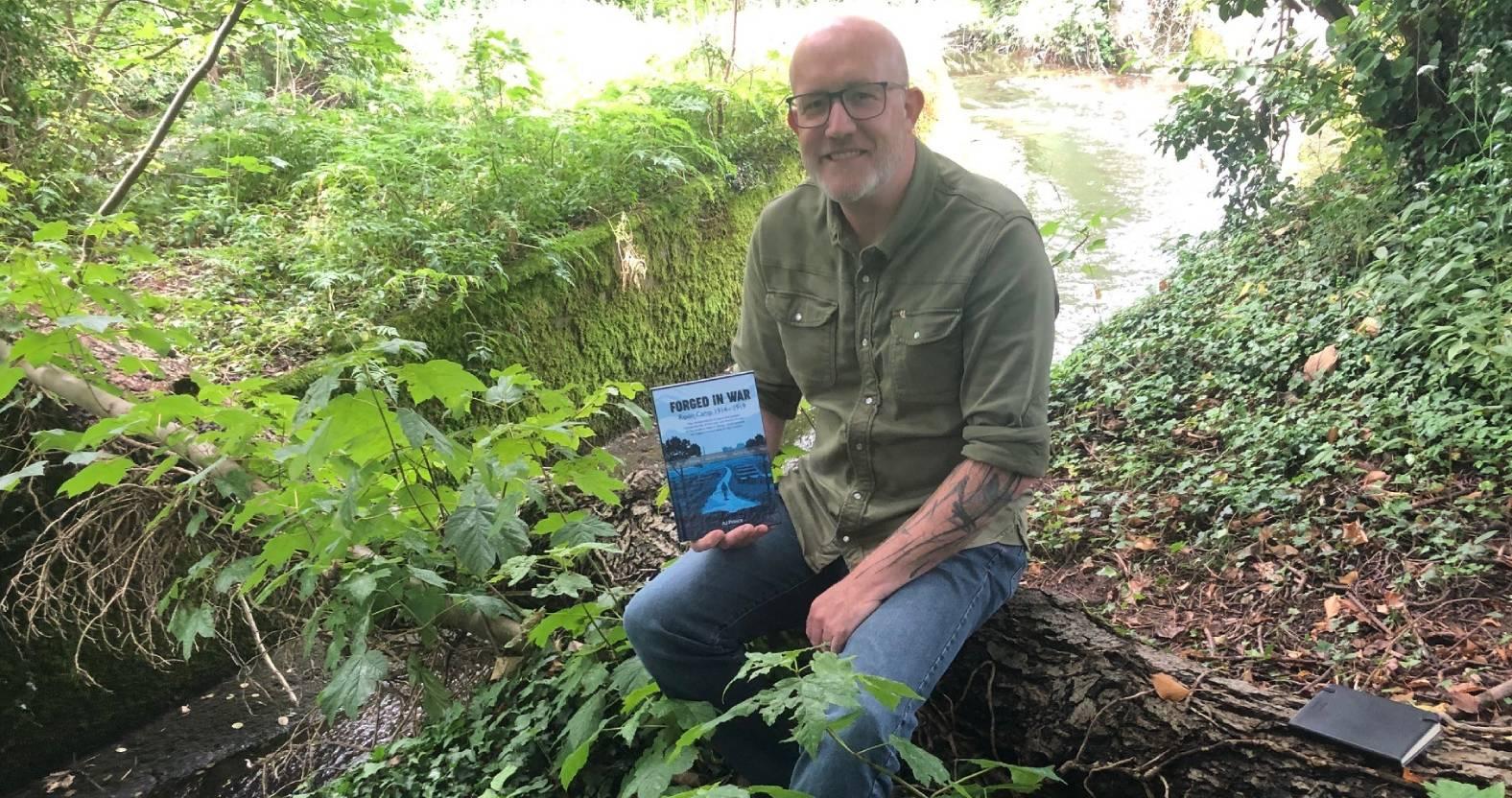Subscribe to trusted local news
If you are accessing this story via Facebook but you are a subscriber then you will be unable to access the story. Facebook wants you to stay and read in the app and your login details are not shared with Facebook. If you experience problems with accessing the news but have subscribed, please contact subscriptions@thestrayferret.co.uk. In a time of both misinformation and too much information, quality journalism is more crucial than ever. By subscribing, you can help us get the story right.
- Subscription costs less than £1 a week with an annual plan.
Already a subscriber? Log in here.
28
Jul 2024
Book unearths Ripon's forgotten First World War heritage

The vital role that troops trained in Ripon played in World War Two was in the spotlight during last month's D-Day commemoration and celebration events, but the city's First World War heritage has been largely forgotten.
Now, after four years of painstaking research by Ripon author Antony Prince, the incredible part that the city and its citizens played in the 'war to end all wars' has been unearthed through the pages of his newly-published book Forged in War - Ripon Camp 1914-1919.
The book focsuses on the impact that the huge camps situated to the north and south of Ripon had on one of Britain’s smallest cities.
At any given time, the combined number of men located at the training and recuperation camps totalled 42,000 - more than five times the size of the city's then population - and during the course of the war and a year after it finished, they provided a temporay home for 1.5 million men who were passing through.
Mr Prince told the Stray Ferret:
I found myself driven to unearth stories and claim back Ripon's lost role in the Great War, while aiming to capture the essence of the war on the home front from a very human perspective, with Ripon at its epicentre.
What I did not expect to unearth in the investigative process was a compelling argument that Ripon Camp was probably the largest and most influential military camp in Britain.
This evidence combined with the fact that the camp dominated one of the smallest cities in Britain has revealed fantastic forgotten stories of Riponians and what they did to support the war effort.

Antony Prince will be signing copies of his book at Ripon Library, between 11am and 2pm on Thursday August 8
During his investigations, Mr Prince, discovered facts about the then state-of-the art power station built near the River Laver to provide electric light for the camp.
He found out about a Zeppelin attack on the Sugar Hills Field at Newby Hall, a murder and mutinies and also learnt about a 'Highland Games' staged at Ripon Racecourse to entertain the troops, along with the four cinemas in the city where they could see the latest black and white blockusters.
Mr Prince pointed out:
In today's money they brought spending power that was worth £1 million a week to the city and their contribution to Ripon's rich military history, though short-lived, must never be forgotten.

The power station that was built near the banks of the River Laver, where a weir was also constructed. Picture Ripon Military Heritage Trust.
In his foreword to the book, leading historian and author Dr Peter Liddle, who specialises in the study of the First and Second World Wars, said:
Antony Prince has successfully tackled something that has long been needed, a richly and comprehensively detailed history of probably the largest First World War Army Training Camp in Britain and one which, paradoxically, was in one of Britain’s smallest cities.
He tells us graphically through original letters, diaries and personal recall of the development of the camp and its facilities, of the wide range of activities, of the new soldier’s arrival there, his undergoing training programmes, his food and relaxation, the entertainment provided, sporting, cultural and educational provision and of spiritual support.
He added:
There are intensely interesting personal stories here, of both benevolence concerning the welfare of those under military training and, unsurprisingly, of an entrepreneurial business nature, the opportunity to take commercial advantage.
Some of the stories, like those of many soldiers quoted, are very sad, but eminently worthy of remembrance. It has been a pleasure for me to read, learn from, and warmly recommend this outstanding contribution to both local and national history.
0